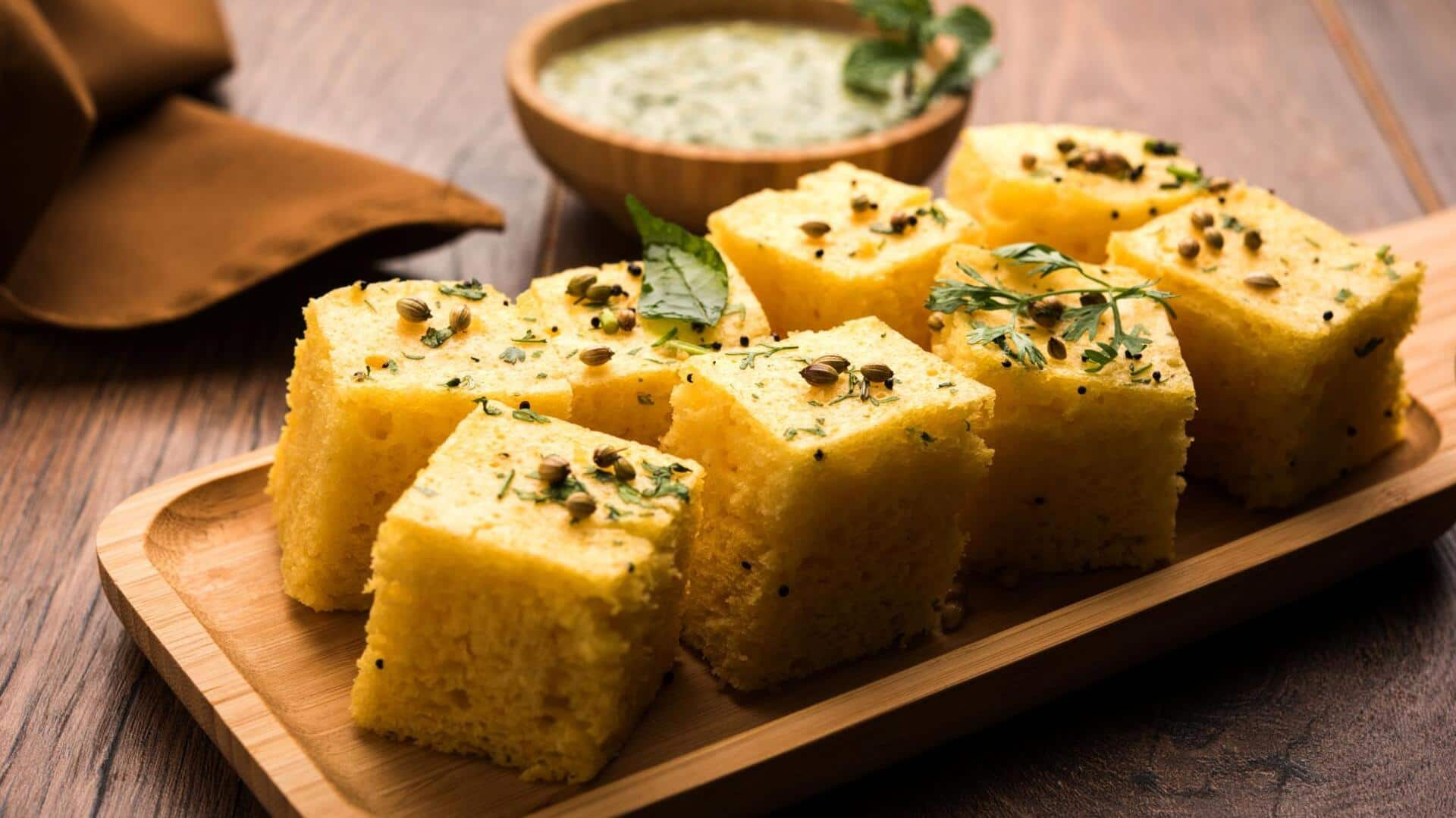
Savoring fenugreek in Gujarati snacks
What's the story
Gujarati cuisine is renowned for its varied flavors and health-conscious ingredients. Fenugreek, or methi as it's locally called, is particularly notable for its aromatic and slightly bitter taste. This article delves into how this versatile herb elevates simple snacks into delightful treats. Fenugreek's unique flavor profile and health benefits make it a standout ingredient in Gujarat's culinary tradition, transforming everyday dishes into something special.
Dish 1
Methi thepla: A staple delight
Methi thepla is a quintessential Gujarati snack that combines the nutritional benefits of fenugreek leaves with whole wheat flour. This flatbread is seasoned with turmeric, chili powder, and a hint of asafoetida, making it not only delicious but also beneficial for digestion. Methi thepla serves as an excellent travel food due to its long shelf life.
Dish 2
Dhokla with a twist of fenugreek
Traditional dhokla, a beloved Gujarati snack, reaches new heights when fresh fenugreek leaves are added to its batter. This innovative twist introduces a subtle bitterness that perfectly complements the dhokla's inherent slight sweetness and tanginess. Steamed to achieve a light and spongy texture, this variation is both nutritious and immensely satisfying, making it a must-try for anyone exploring Gujarati cuisine.
Dish 3
Fenugreek-flavored muthia: A healthy treat
Muthia represents another gem in Gujarati cuisine where fenugreek leaves are mixed with chickpea flour or whole wheat flour, along with spices, to create steamed dumplings. These are then lightly sauteed with mustard seeds and sesame seeds for an added crunch. Muthia can be enjoyed as a snack or breakfast item, offering both flavor and health benefits.
Dish 4
Farsan featuring fenugreek magic
Farsan refers to savory snacks in Gujarati culture, enriched with fenugreek for taste and nutrition. Including methi pakoras and methi khakhra, each snack offers a unique experience where fenugreek's bitterness balances with other spices. Fenugreek's inclusion in snacks like thepla and dhokla enhances their flavor and nutritional value, making it a key ingredient in Gujarat's culinary repertoire.